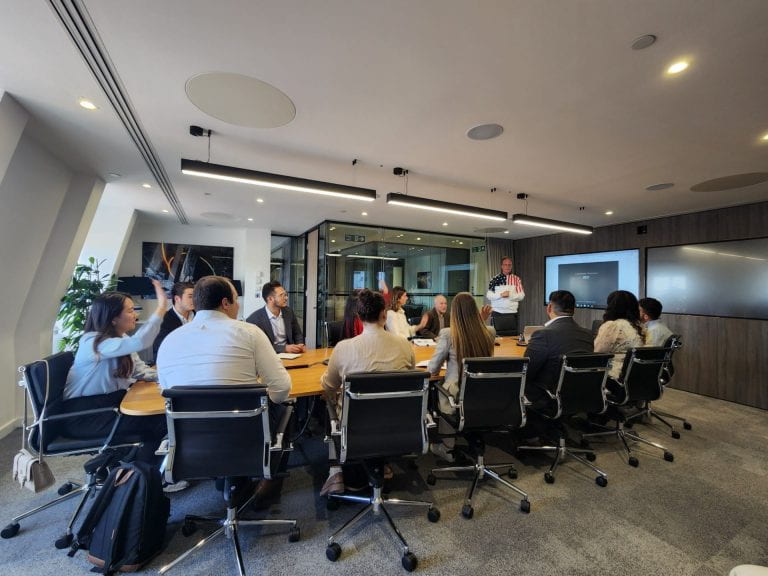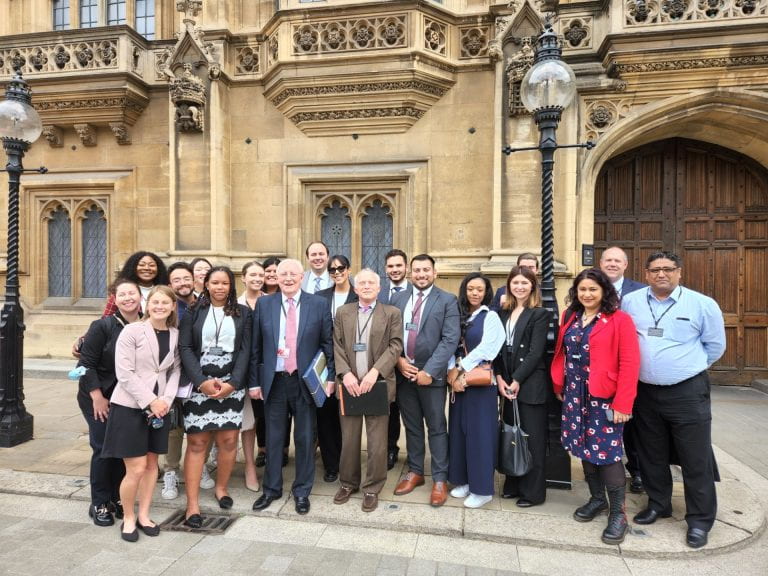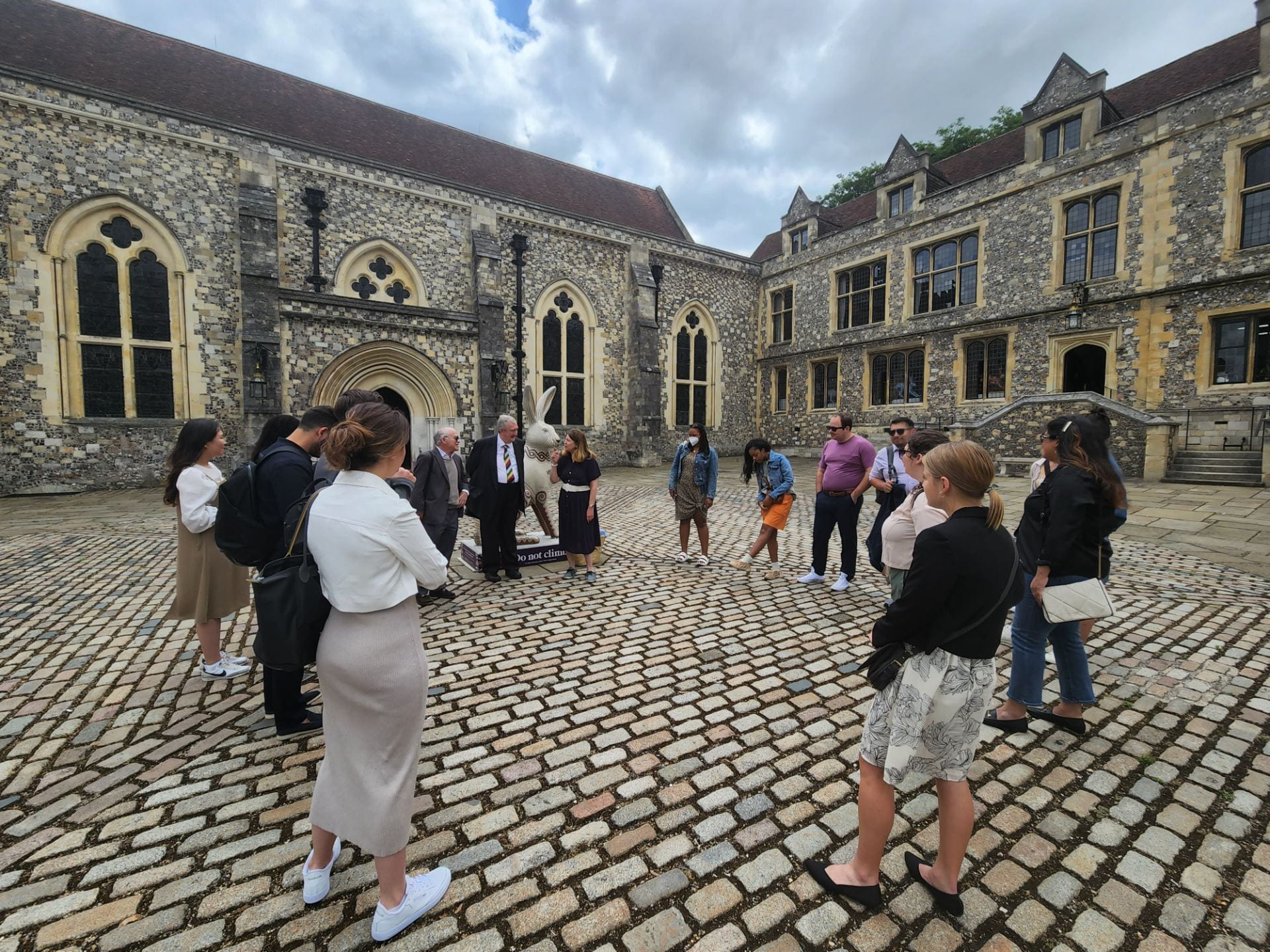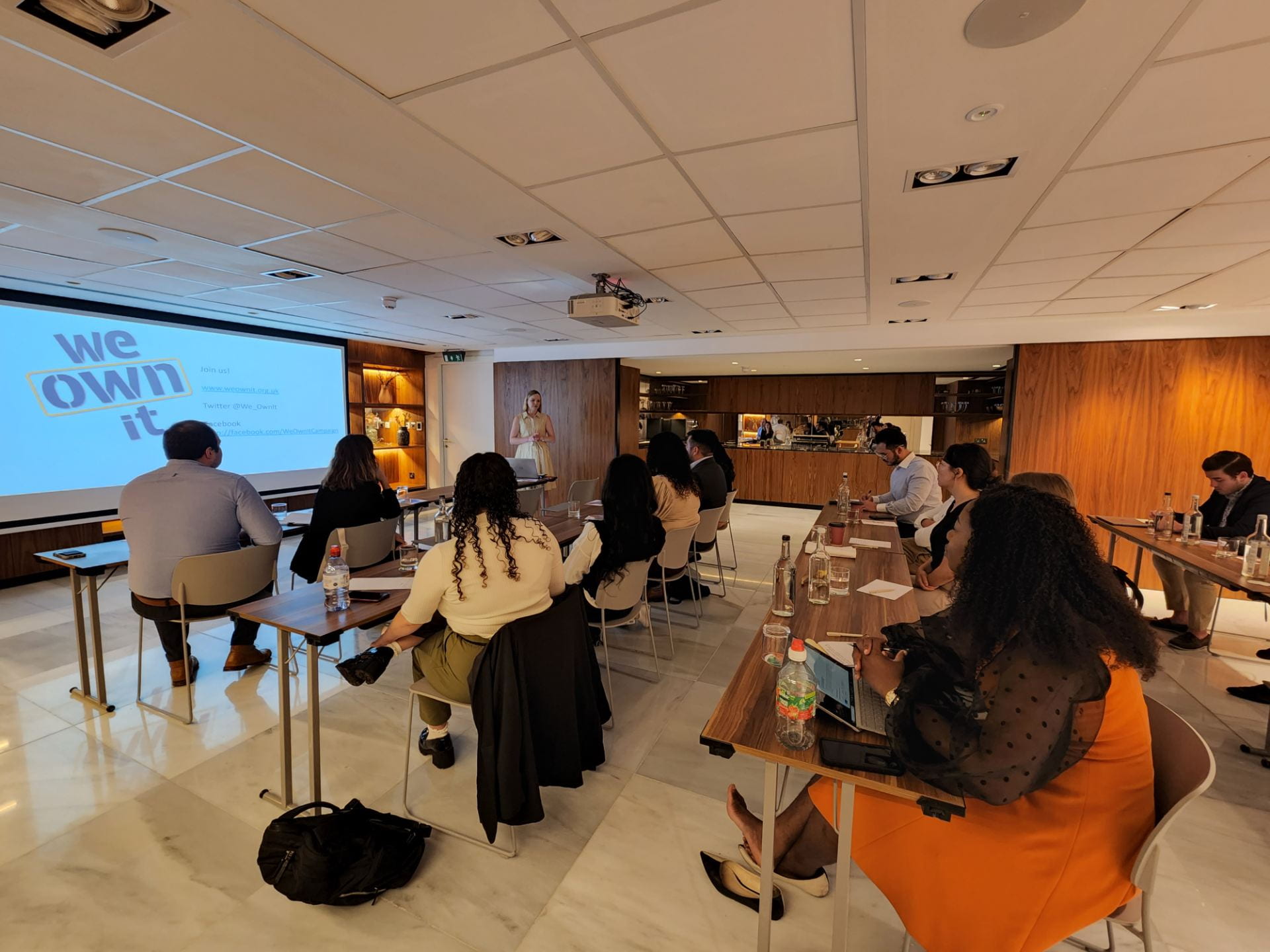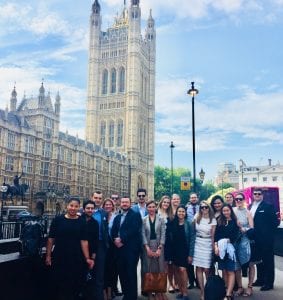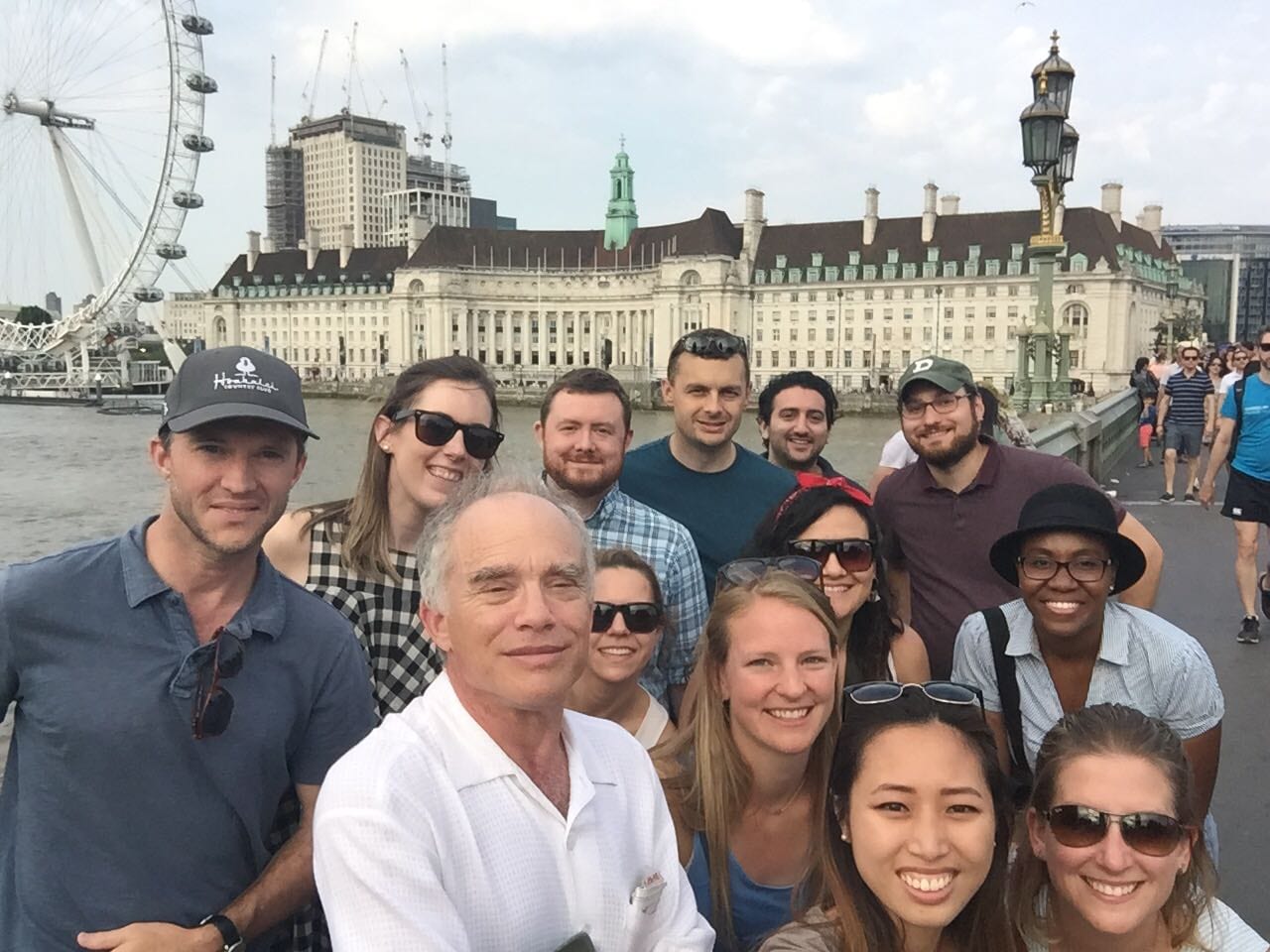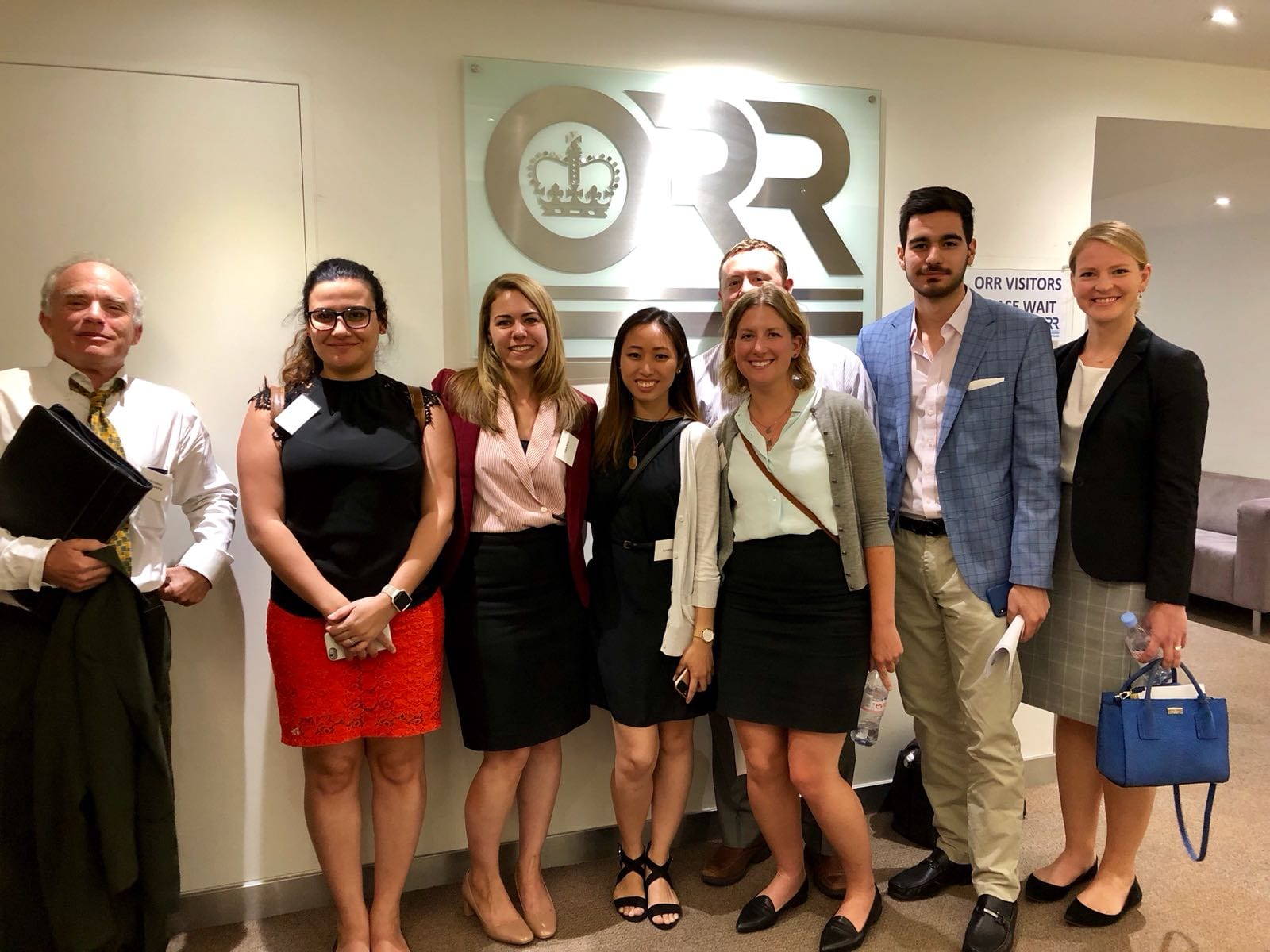Featured in the above photo: GWSB alumnus Christophe de Taurines discussing his career in private equity.
Reflection by Michael Stavely, Professional MBA Student
One of the biggest regrets of my undergrad career was not participating in study abroad. Between changing majors a few times and needing to graduate, I never found the time. When I learned about the opportunities for Short Term Away Programs (STAP) at GW, I vowed I would make international education happen.
Some of my biggest challenges as a part time MBA student were how to make it work with my job, so when I was considering the short term away programs, I made my decision based on the following criteria:
- Is the material related to my career?
- Is the location dangerous for US students?
- Is the duration compatible with my work schedule?
The Business & the State program in the United Kingdom was the best fit.
I expected to learn about public-private partnerships. I expected to revisit a city I’ve traveled to many times and see the sights. What I did not expect was a fundamental shift in thinking surrounding the roles of the public and private sectors.

View of Big Ben in Westminster.
As we all know, in the United States the polarization of the government makes effective governance difficult when tackling modern threats such as the climate crisis. Just this summer, elected officials in South Carolina threatened to destroy electric vehicle charging ports primarily to protest their installation. It’s too common in the United States for decisions to be made based on emotions and immediate gain.
I’m used to capitalism opposing government in a seesaw balancing to protect our resources while making money. However, this experience has restored my faith that the market can correct itself and be dynamic in facing the challenges of the generation. When we met with Carolyn Harris MP and heard her describe the focus she has employed to make changes in government even in the opposition party was empowering as a citizen. Meeting private equity managers like Christophe de Taurines and Peter Durante to discuss their contributions to society while serving shareholders was empowering as a future business leader. Hearing Richard Threlfall discuss a future lead by business investing in a green infrastructure and accountability was empowering as someone who wants to live on this plant for the next 60 years.
Carolyn Harris evokes the myth of Cincinnatus, the retired Roman general who assumed the title of Dictator to save the empire then quietly returned to his farm. Her story of assuming power to serve her people after personal tragedy despite her lack of political experience is inspiring. Perhaps it is due to the differences between Congress and Parliament and the size of constituency, but the perception she emits is a caring mother who is trying to exercise the power she has, to improve her own corner of the world.
The most important aspect of her success is her focus. Her focus on covered funeral expenses for children, making real impact in her local community, and the effect of menopause on women’s health around the world is more akin to a master strategist defining their competitive advantage than US politicians with their kaleidoscope of issues. This focus makes her dangerous to the status quo, it makes her effective.

Carolyn Harris (MP for Swansea East) discussing her career in politics.
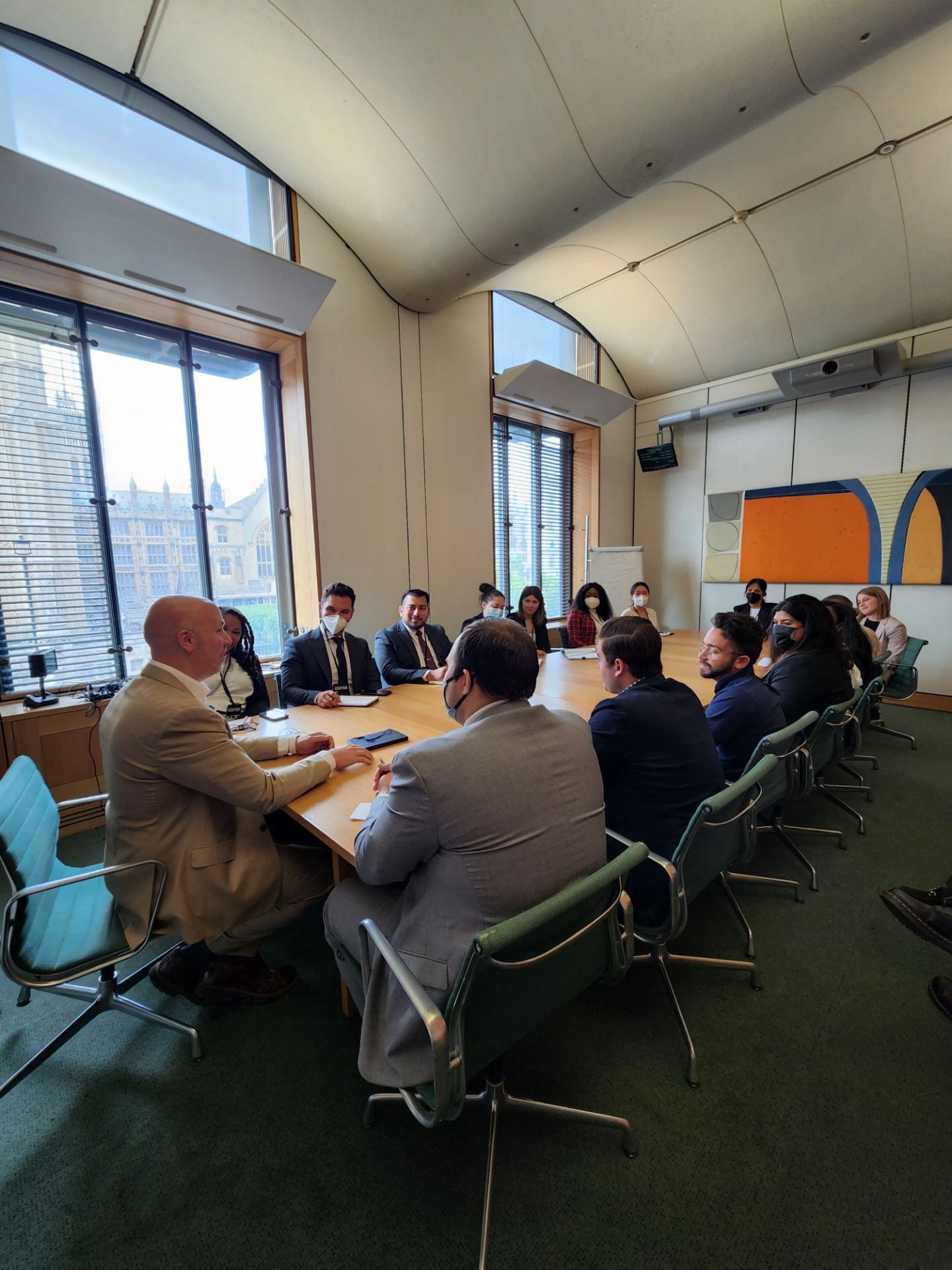
Peter Durante discusses contributing to society while serving shareholders.
Private equity has never been on my radar for a potential career path, but based on Christophe and Peter’s presentations, the variety of my skills, and the ability to contemplate the larger picture make it a fit for my interests. The idea of designing a town and understanding the complexities of potential crisis situations like tidal waves or energy shortages to minimize risk is very interesting to me.
Additionally, from Peter’s presentation, the application of data science and regressions techniques to compare forecasted data models to actual events and identify trends is an interesting use case leveraging the rapidly developing technologies like data lake structure and automation. With my background diverging from the traditional business student with my degrees in Geography and Geology as well as my experience in data science, database engineering, defense, and national security, the marrying of my education and experiences is powerful for me shaping the future of my career. The vision of a future where I can implement all my interests excites me and identifying a potential career path early helps me focus on aspects I am currently lacking to attain that next level.
Finally, our time at KPMG provided the best fit for my skillset. Much of my education and experience has been siloed into the fields and industries they apply to. Richard’s discussion of being industry leaders and knowledge workers to combat the climate crisis excited me. As implied previously, my ideal future is one that accounts for all my personal experiences and makes the world better through my management.
The interdisciplinary nature of my career has propelled me as the world is not divided into subjects. From my experience with KPMG and this short term away program, they value the intersections of government, business, and other subjects to create better analysis and new insights of the world.
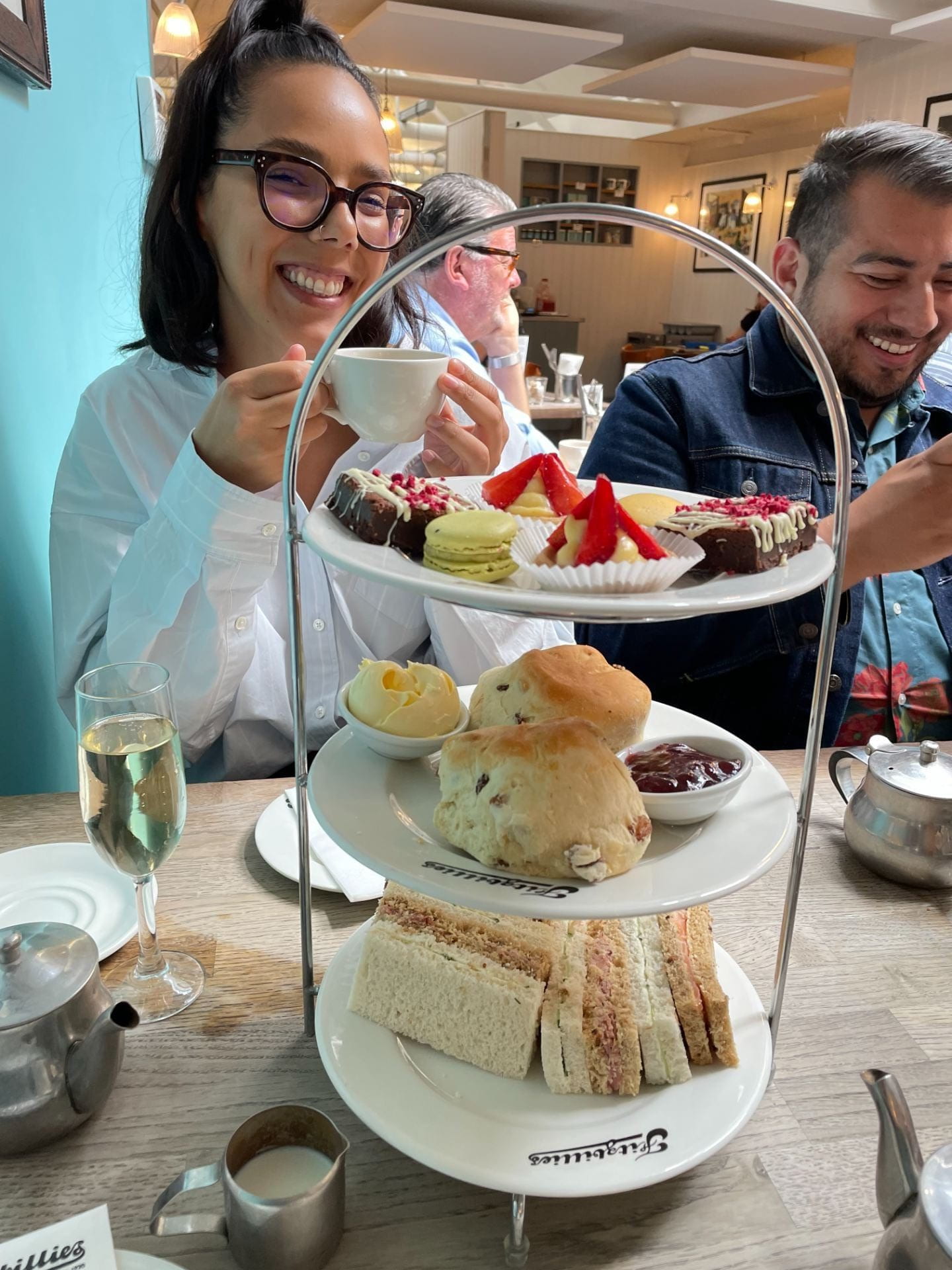
STAP UK participants enjoying afternoon tea.
Because of the subject matter, the students came from a variety of backgrounds including the Public Policy and Business schools. The biggest impact of our mixed disciplinary group was the varying perspectives, assumptions, and considerations in nearly every conversation. Working with the Public Policy students to think through the complex issues of governance improved the experience and strengthened my own understanding of the business principles I have learned in the MBA program while I attempted to explain them back to the other students. While this study away program is not restricted to students finishing their degrees, the capstone aspect of these discussions helped me reaffirm my knowledge.
Overall, it was a great trip and accomplished the goals of interdisciplinary learning and experiencing how the United Kingdom handles interactions between the public and private sectors. I am happy I participated in this program and would do it again in a heartbeat.

